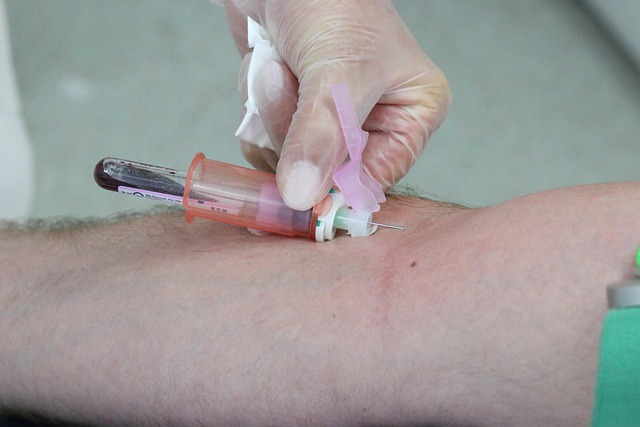Iron Deficiency Anemia (IDA) in the UK is typically diagnosed through blood tests, including ferritin levels and Complete Blood Counts (CBCs). While a testosterone blood test isn't initial, it may be ordered alongside other investigations to assess hormonal imbalances or contributing conditions. During a testosterone blood test for IDA, a healthcare professional draws a small sample, sends it to a lab for iron level analysis, and interprets the results to guide follow-up care.
“Uncover the mysteries of iron deficiency anemia, a common yet often overlooked health concern. This comprehensive guide delves into the world of diagnosing this condition, focusing on the pivotal role played by blood tests in the UK.
While symptoms like fatigue and pale skin may hint at anemia, a testosterone blood test UK offers a definitive answer. We’ll explore how this simple procedure helps identify iron deficiency, providing crucial insights for effective treatment and management.”
- Understanding Iron Deficiency Anemia and Its Symptoms
- The Role of Blood Tests in Diagnosing Iron Deficiency Anemia
- Iron Deficiency Anemia Testing: What to Expect During a Testosterone Blood Test UK
Understanding Iron Deficiency Anemia and Its Symptoms
Iron deficiency anemia is a common blood disorder where your red blood cells don’t have enough healthy hemoglobin, leading to reduced oxygen delivery to your body’s tissues. This often results in fatigue and weakness, but symptoms can vary greatly from person to person. In some cases, individuals may experience shortness of breath, dizziness, pale skin, or even chest pain. The condition is typically caused by a lack of iron in the diet, blood loss, or both. Iron plays a crucial role in producing hemoglobin, which carries oxygen throughout our bodies.
In the UK, if you suspect you have symptoms of anemia or are concerned about your iron levels, a testosterone blood test might not be the primary diagnostic tool. Instead, healthcare professionals often recommend a complete blood count (CBC) to check for red blood cell count and hemoglobin levels. If anemia is suspected, further specialized tests may be conducted to determine the underlying cause, such as ferritin (iron storage) levels or specific iron absorption tests.
The Role of Blood Tests in Diagnosing Iron Deficiency Anemia
Blood tests play a pivotal role in diagnosing Iron Deficiency Anemia (IDA). These tests are essential tools that help healthcare professionals identify low levels of hemoglobin or red blood cells, both key indicators of anemia. By analyzing a sample of your blood, doctors can measure ferritin levels, a protein that stores iron in the body. Low ferritin levels suggest iron deficiency, as it reflects limited iron availability for red blood cell production. Furthermore, a complete blood count (CBC) is often performed to assess the number and size of red blood cells, providing crucial insights into the presence and severity of IDA.
In the UK, testosterone blood tests are not directly related to diagnosing IDA but can be ordered alongside other investigations if there’s a suspicion of underlying hormonal imbalances or conditions that might contribute to anemia. It’s through this comprehensive approach, combining specific iron-related tests with broader blood analyses, that healthcare providers can accurately diagnose and subsequently treat Iron Deficiency Anemia effectively.
Iron Deficiency Anemia Testing: What to Expect During a Testosterone Blood Test UK
Iron Deficiency Anemia Testing: What to Expect During a Testosterone Blood Test UK
When undergoing an iron deficiency anemia test in the UK, specifically a testosterone blood test, it’s important to understand what to expect. The process involves drawing a small sample of your blood, typically from a vein in your arm. A nurse or medical professional will clean the area and insert a needle, collecting a few milliliters of blood into a tube. They’ll then label the sample, ensuring it’s handled with care to maintain its integrity.
After the sample is collected, it’s sent to a laboratory for analysis. The testosterone blood test checks for levels of iron in your blood, which can indicate whether you have iron deficiency anemia. Normal ranges vary slightly between labs, but generally, low iron levels suggest anemia. Your doctor will interpret these results and discuss any necessary follow-up actions or treatments with you.
Iron deficiency anemia, a common blood disorder, can often be accurately diagnosed and managed through simple blood tests, including the testosterone blood test UK. By understanding the symptoms and the crucial role of these tests, individuals can take proactive steps towards optimal health. This convenient and effective method of detection allows for timely treatment, ensuring those affected can lead healthier lives.
